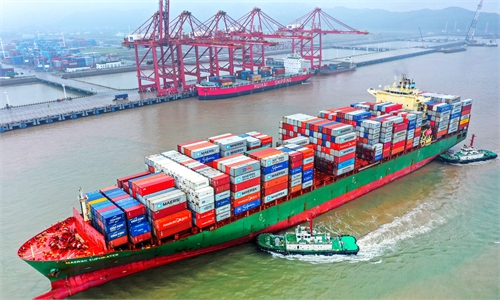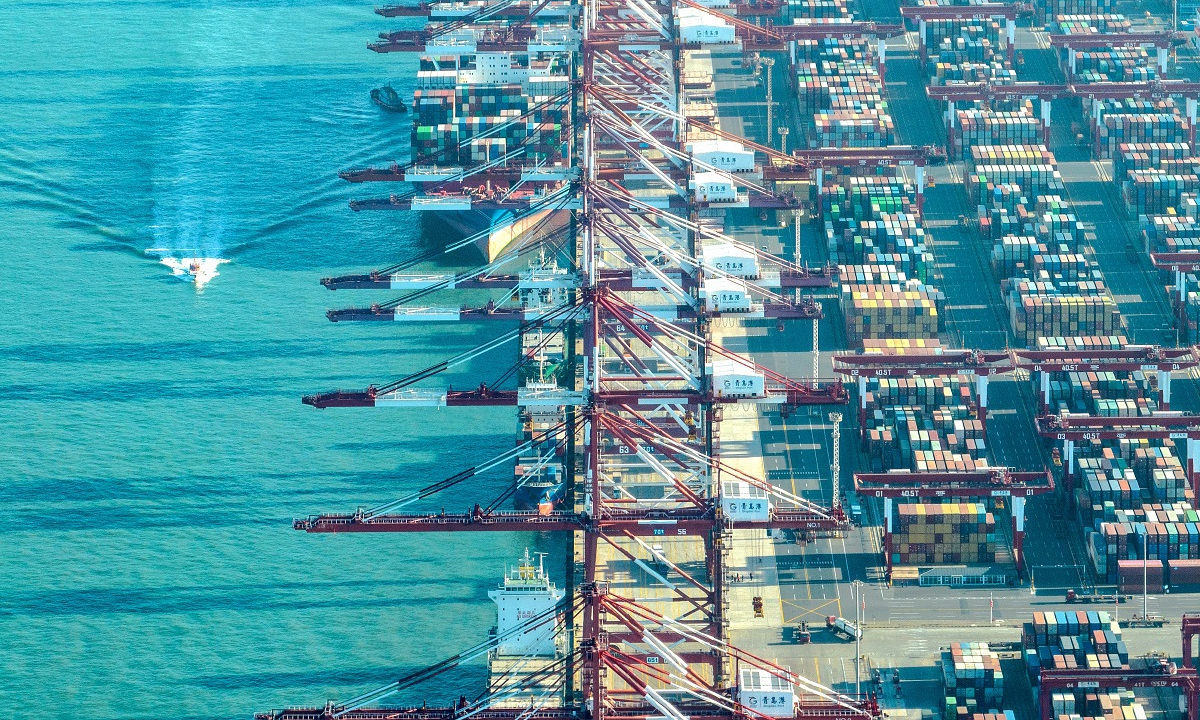
Qingdao Port in East China’s Shandong Province on December 14, 2022 Photo: VC
"The GDP growth rate will reach 8 percent," said Wei Jianguo, vice chairman of the China Center for International Economic Exchange and former vice minister of the Ministry of Commerce.
"Growth rate is expected to reach 6 percent next year, or even hit 8 percent," remarked Jia Kang, former director of the China Academy of Fiscal Sciences.
"It wouldn't be too outrageous if economic growth reach 8 percent," added Yao Yang, dean of the National School of Development at Peking University.
At a panel discussion during the Global Times Annual Conference on Saturday, several former senior officials and prominent economists painted a bright outlook for the world's second-largest economy in 2023, drawing confidence from the resilience of the Chinese economy and expectations for an improved epidemic situation and stepped-up efforts to boost growth.
Expectations for a rapid economic recovery in 2023 were also boosted by a series of pro-growth policy measures outlined by top policymakers during the annual Central Economic Work Conference concluded on Friday, which vowed to promote an overall improvement in economic operations in 2023.
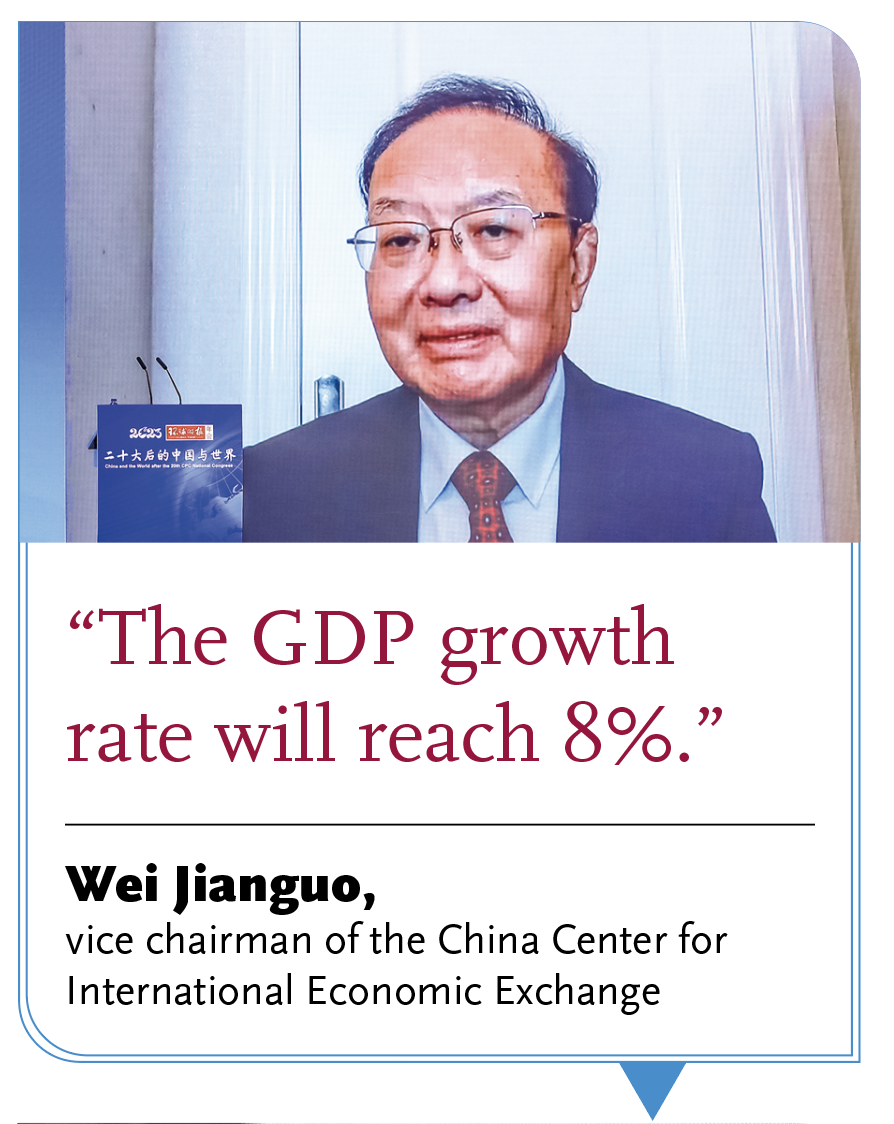
Wei Jianguo
Bold forecasts
"China's economy will fight its way out of the challenges and thrive next year. The GDP growth rate will reach 8 percent," Wei told the panel on Saturday.
Wei noted that the country's strong industrial and supply chains not only withstood the onslaught of the pandemic, but also repelled the obstruction of the US and some European countries that seek to "decouple" from China.
In addition, the country still enjoys an enormous market and strong consumption capacity, he added. "A new development pattern that focuses on internal market will be formed rapidly next year, while the digital economy, intelligent manufacturing, urban development and green economy will bolster the formation of the new consumption pattern," Wei said.
Yu Yongding, an economist at the Chinese Academy of Social Sciences, said during the Global Times Annual Conference that China's GDP growth target could be set at above 5 percent or even 6 percent in 2023, and the country should adopt an expansionary fiscal policy to achieve the goal.
The Central Economic Work Conference also highlighted the need to step up proactive fiscal policies to maintain the necessary fiscal spending intensity as well as prudent monetary policy to ensure sufficient and ample liquidity.
"The focus of expansionary fiscal policy is still infrastructure investment, and the financing structure of this field should be improved," Yu noted, adding that localities can take specific measures to stimulate residential consumption.
Yu added that facing a tough foreign trade situation in 2023, China needs to stimulate domestic demand and speed up the construction of a new development pattern that takes the domestic market as the mainstay, while letting internal and external markets boost each other.
Also speaking at the Global Times Annual Conference, Jia predicted that China's economy will grow by around 3 percent in 2022, and the growth is expected to reach 6 percent and could even hit 8 percent in 2023.
Jia stressed that China's economic development should be focused on improving quality as well as efficiency.
Yao also said at the panel discussion on Saturday that China's economic growth in 2022 will be between 3 to 3.5 percent and will reach at least 6 percent in 2023.
Yao noted that the economy could be "a little bit overheating" next year, but "it wouldn't be too outrageous if economic growth reach 8 percent… if we let the economy develop, a growth rate of at least 6 percent is expected."
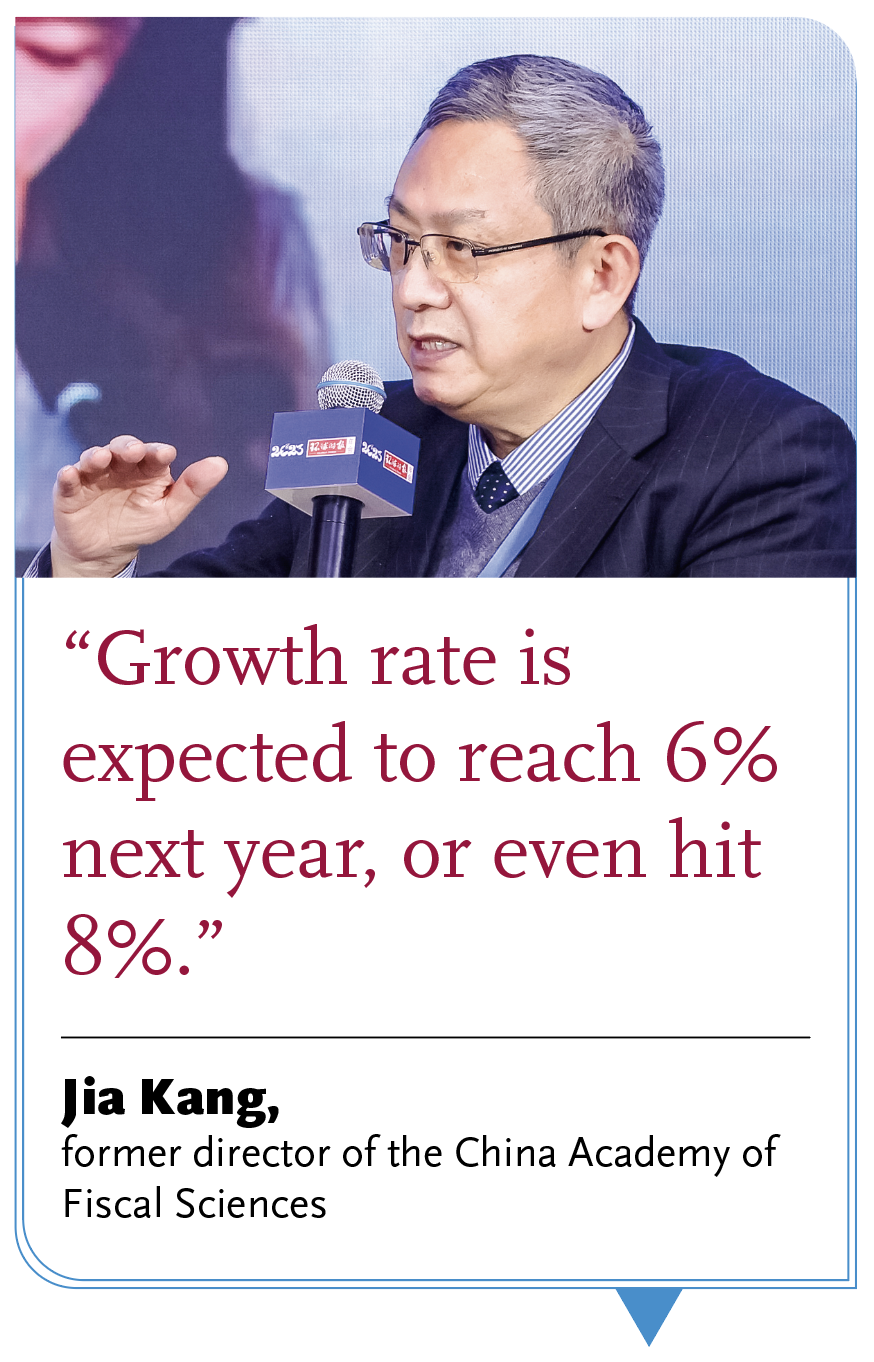
Jia Kang
External uncertainties
In terms of the country's foreign trade, Wei noted that next year, foreign trade will still make a more important contribution to the country's overall economic development, as the high-quality opening-up will lead to a new leap in China's business environment and a more market-oriented and internationalized Chinese capital market system will take shape next year.
"More policies will be introduced for private and foreign enterprises next year to create a more favorable business environment that reflects fairness, openness and justice," Wei added.
The Central Economic Work Conference also vowed to further stabilize exports and foreign investment. It called for further expanding market access by actively pushing for accession to the Comprehensive and Progressive Agreement for Trans-Pacific Partnership, the Digital Economy Partnership Agreement and other high-level international agreements. It also vowed to provide maximum convenience for foreign businessmen to come to China to engage in trade and investment activities.
Zhu Guangyao, a former vice minister of finance, suggested that the country should be highly alert to shocks caused by sharp turns in monetary policy in developed countries.
"There would be a backlash not only for developing countries, but also for developed countries themselves. If a financial crisis breaks out in major developed economies, the depth and breadth of that crisis is something we can hardly predict," Zhu noted.
Zhu added that the country should focus on investing in improving productivity, which is critical for China's economy to quickly return to a reasonable growth range under the current circumstances. In addition, innovation-driven growth in productivity is also extremely important, he said.
Against the backdrop of recessionary challenges throughout the global economy and possible turbulence in the international financial market, Zhu believes that China, as the world's second-largest economy and the world's largest trading nation, "will give full play to its potential and meet the growing needs of the Chinese people for a better life, which is also our contribution to the development of the global economy."
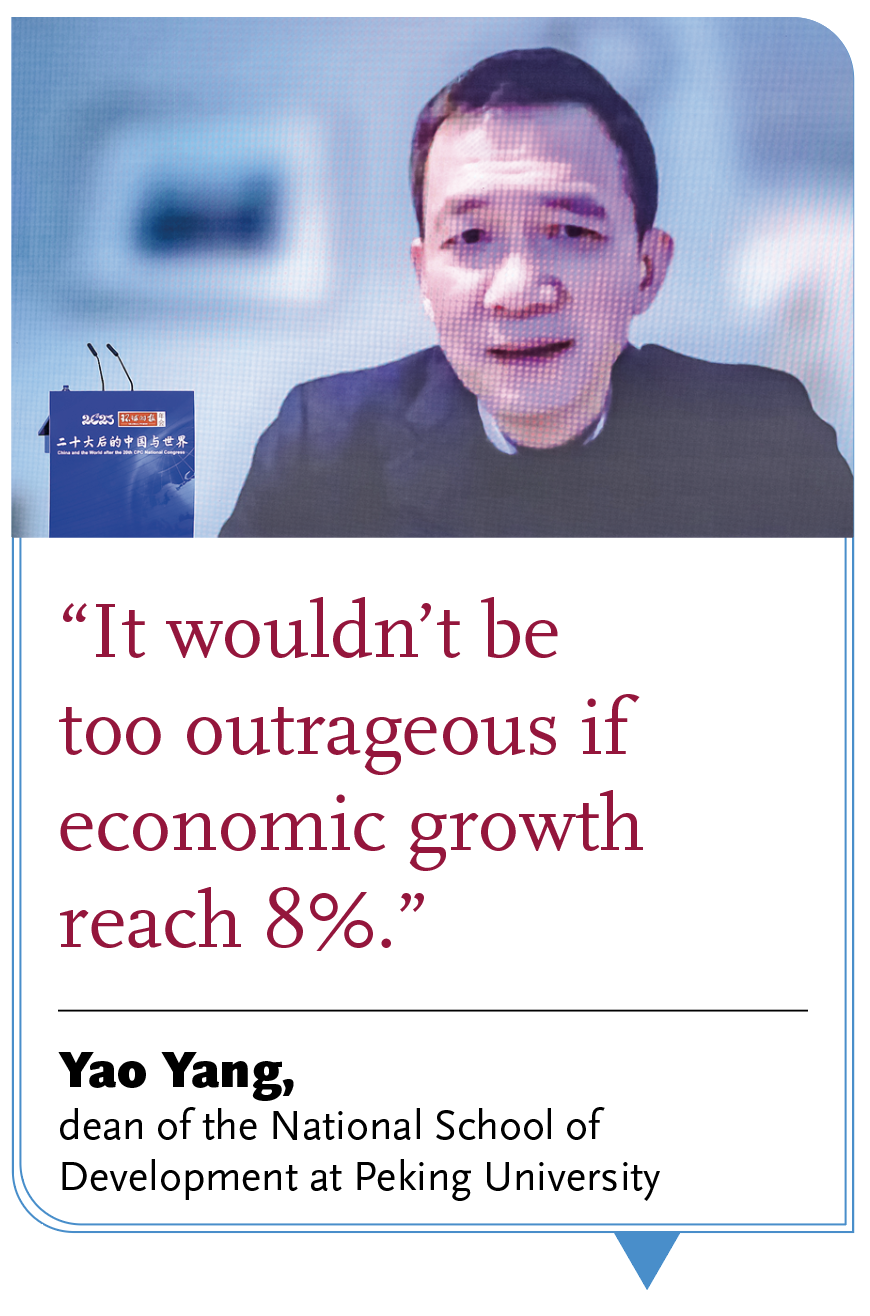
Yao Yang


